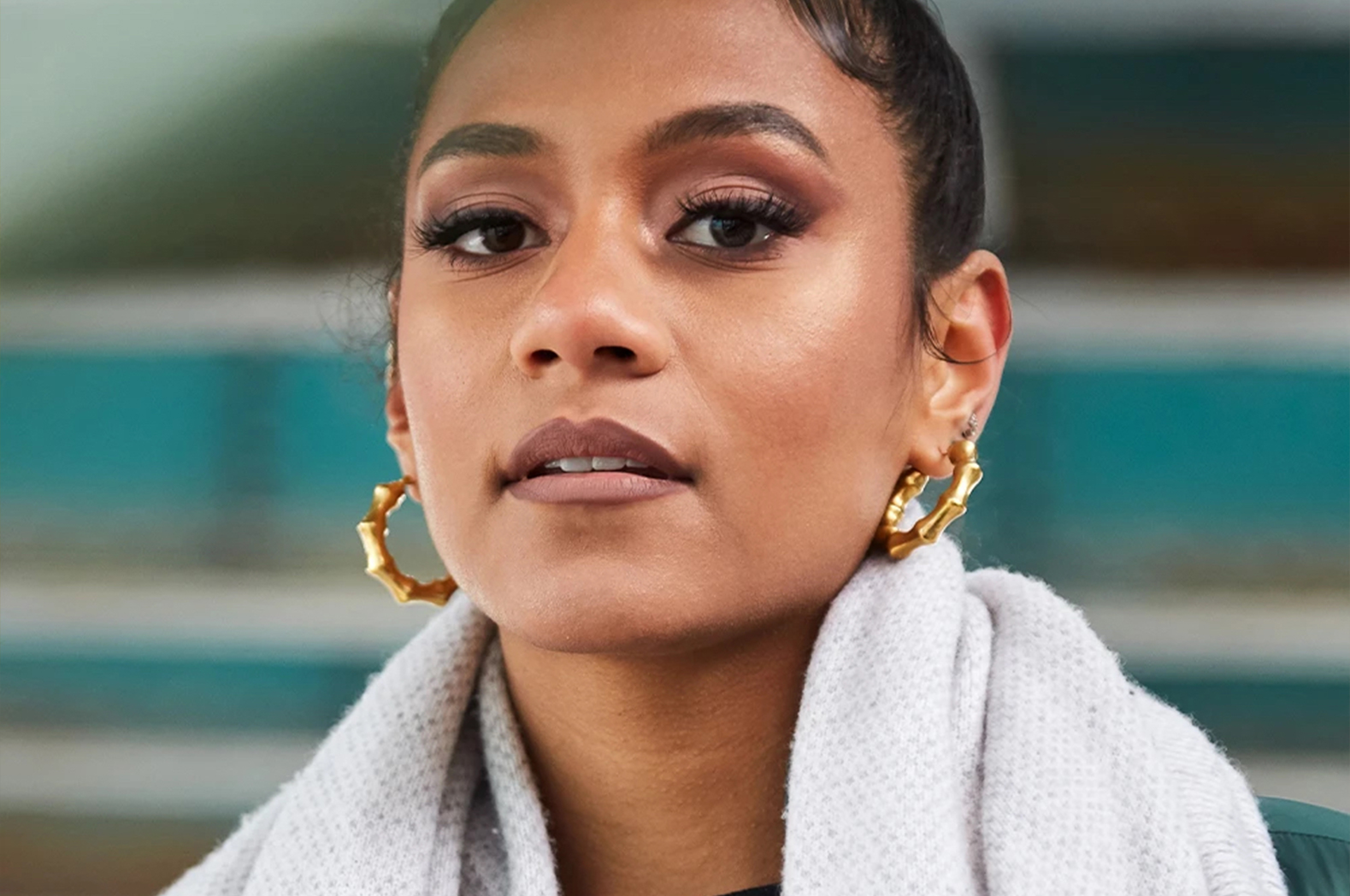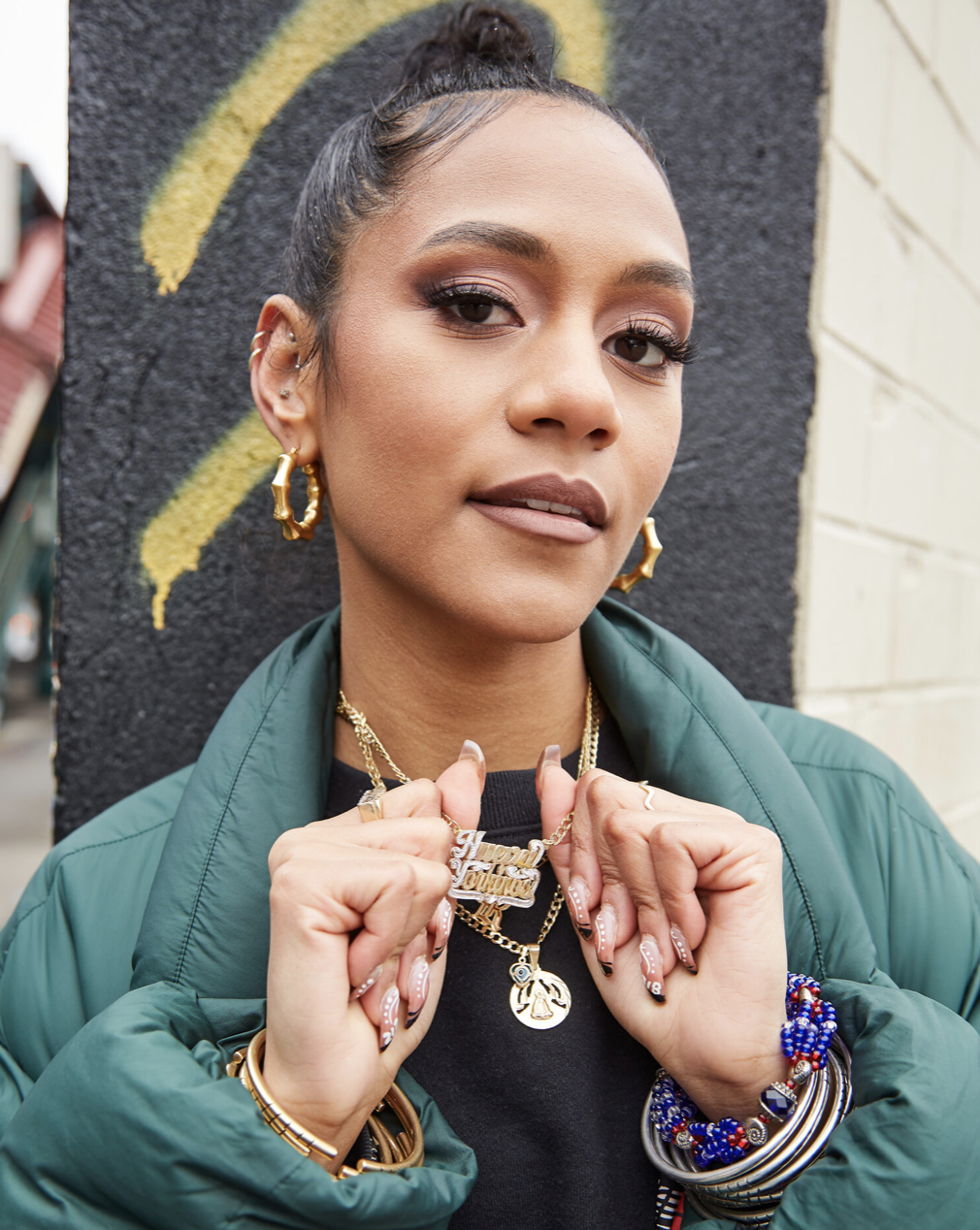Djali Alessandra Brown-Cepeda is a New York City-born-and-bred filmmaker, racial justice advocate and archivist. You may recognize Brown-Cepeda from her digital archive project Nuevayorkinos, which was born in 2019 out of a void in representation for Latinx people in New York City. Brown-Cepeda describes this project as her “homage to a city that is becoming rapidly gentrified, where black and brown communities are being completely upheaved.”
This reality hits home for Brown-Cepeda, an Afro-Latina native of both Dyckman in Inwood and the Soundview section of the South Bronx — two neighborhoods that, much to local community members’ dismay, have been shifting in racial and socioeconomic demographics. The past 21 months of the COVID-19 pandemic only further exacerbated the erasure of communities of color, with Black and Latinx people hit the hardest across New York City.
While Nuevayorkinos and its 31,000 followers on Instagram continue to share stories about will power, adaptation, love and belonging, Brown-Cepeda has been moved by the outpour of people using the page as a place to pay homage to their loved ones who they have lost to COVID-19. For many, Nuevayorkinos had become a digital altar at the peak of the pandemic.
“In every single aspect, marginalized people were further marginalized by this pandemic,” Brown-Cepeda tells Latina. “As an archivist, I have a duty to protect the stories that are being erased and being overlooked. I have to make sure that our impact is not forgotten and that our histories are not forgotten.”
In a new installation that brings Nuevayorkinos’ photography from the digital realm to the physical space, Brown-Cepeda continues to center the stories of marginalized New York immigrants through her “Nuevayorkinos: Essential and Excluded“ exhibit at the Museum of Modern Art PS1 in Long Island City, New York, which will be on display through January 3, 2022.
View this post on Instagram
Through a series of photos, testimonies, a documentary and a sala outfitted with a couch and chairs in a room surrounded by a display of protest signs and organizing materials, Brown-Cepeda tells the stories of hunger strikers, organizers, and decision-makers who pushed New York State to create the $2.1 billion Excluded Workers Fund in 2021. The first-of-its-kind fund was championed by New York City-based members of the Fund Excluded Workers Coalition, Make the Road, New York Communities for Change and the Street Vendor Project, and received support from Congresswoman Alexandria Ocasio Cortez and other New York lawmakers. The fund became the United States’ largest economic assistance program, intended to aid nearly a half-million essential immigrant workers who were excluded from pandemic-related relief programs.
“So many Black and Brown shops and business owners were affected. So many undocumented Latinx people and immigrants weren’t able to get relief. Erasure looks like our people having to stand on lines that stretch three blocks during the height of the pandemic to get food for their children,” Brown-Cepeda says. “These are situations that other communities in the same city don’t have to deal with.”
While Brown-Cepeda says she hopes people can celebrate how New York City’s immigrant communities have contributed to the city and country’s social fabric, she also hopes it invites viewers to confront their own biases by asking themselves, “What can I do to show up for and stand in solidarity with immigrants?”
“The immigrant and Afro-Latinx footprint in New York City — a city that we have contributed to from the jump — needs to be protected and passed on,” she adds.
View this post on Instagram
This passion for preserving history and culture through Nuevayorkinos, Brown-Cepeda says, is thanks to being raised between two multilingual, multi-generational households who didn’t hold back on discussing history, racism and colonialism, and exposed her to “the beauty of the diaspora.” She adds that she was taught early on to look at life through a social justice lens and can’t remember a time when her family didn’t teach her to honor her Black, Afro-Indigienous and Caribbean roots. Through Nuevayorkinos, she hopes others will do the same.
Beyond memorializing New York City through the eyes of Latinx New Yorkers, Brown-Cepeda also strives for Nuevayorkinos to set up the next generation for success. For the past two years, she has given away over 1,000 backpacks to children at community back-to-school drives in Dyckman and Bushwick. With support from large brands and community-based organizations, Brown-Cepeda has also been able to support mutual-aid efforts and nonprofits that directly serve underprivileged communities in New York City.
“Nuevayorkinos is about providing space for a hyper-marginalized, hyper-overlooked group that has been and will always be so incredibly instrumental to New York City and, by proxy, our country,” Brown-Cepeda says. “While I am centering the Latinx immigrant experience, I hope that people from other different immigrant communities and backgrounds see themselves represented too.”
View this post on Instagram










